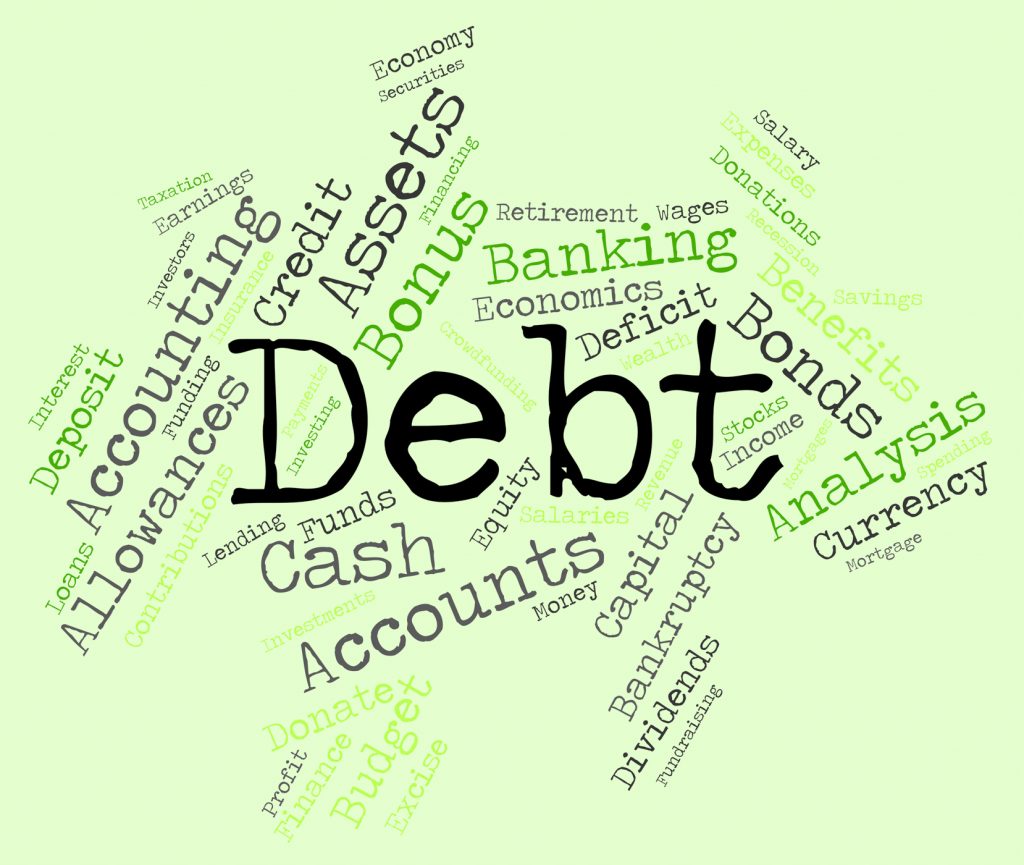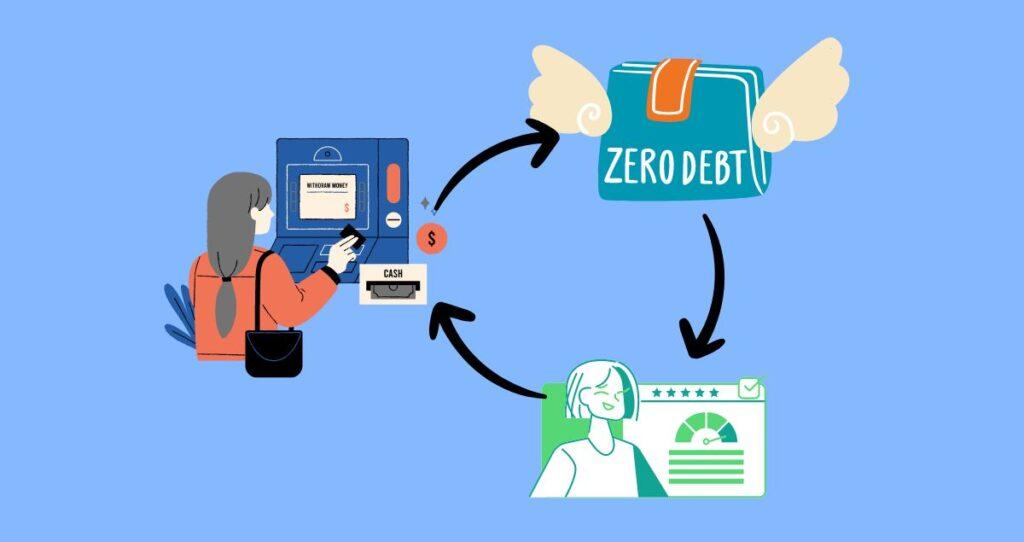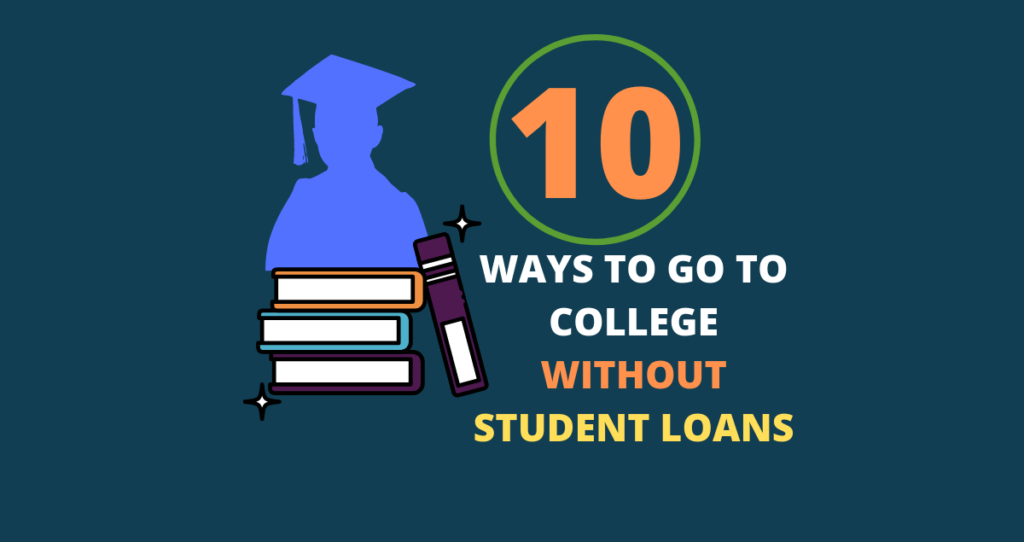What is debt?
Debt is an amount of money that you owe to a person, bank, company, etc. according to Merriam-Webster. It can also mean the obligation to pay a person or perform a specific task due to an agreement you had with that person in the past.
Debt can be applied to an individual, business, or country. This is because any party in these three groups can borrow money from another. For example, a country can borrow money from another to revive its economy. Or a person can borrow money from a bank in the form of a mortgage to buy a house.
Categories of Debt

There are many categories of debt. The following are some of their main categories.
- Secured debt: For this debt, the borrower needs to have a collateral asset in case they can’t pay it off. Credit history may be used to determine the credibility of the borrower and whether or not they will be able to pay off the debt.
- Unsecured debt: For this kind of debt, the borrower does not need collateral assets. That is, the lender gives you the money knowing that if you fail to pay it back; there is a higher chance he/she will lose the money. Of course, there will be a written agreement to prove that you have indeed received the money.
- Mortgage: These are common loans known in real estate. The buyer gets a mortgage from a bank to buy a house and the house becomes a collateral asset in case the borrower fails to pay it off. This means that you can end up in foreclosure if you fail to pay off the mortgage.
- Revolving debt: This form of debt allows you to borrow money from the lender up to a maximum amount. For example, you can use the money on your credit card up to the credit line limit. That is once you max your card, you will not be able to use it again until you pay some of it off. This kind of loan is considered to be a line of credit.
- Non-revolving debt: This is a line of credit that you can only use once.
Why is debt so important?
Debt is very important because it compensates all involved parties at the same time. For example, the most used or known debt at the individual level is loans and mortgages.
How is the borrower gets compensated when they take out a mortgage?
Well, there is a reason you go to a bank to get a mortgage. Maybe you want to buy a house. You could also get an auto loan which will help you buy a car.
By having this mortgage or a loan, you are able to afford a house or a car which were unaffordable before your loan approval. Now you can go to work and have a residence for your family.
The main benefit for you here is that you can afford everything you want without exhausting your financial situation. Business owners and entrepreneurs benefit in the same way. They borrow money to start businesses or expand them and pay off the loan slowly by slow.
How does the lender benefit from issuing debt?
Now that we know how a borrower will benefit from debt, it is time to evaluate how the lender will benefit. A person, bank, or lending institution that gives you money will benefit in one way or another.
Before you get the money, you will sign a contract that includes the maturity date of the loan, interest (which can be simple interest or compound interest) on the loan, penalties to be paid if you fail to pay your debt back, etc.
Your lender will pocket yearly or monthly interests on the loan, late fees when you fail to pay on time, associated fees, etc.
If you have a credit card, for example, you will need to pay all money you used every month. If you fail to pay the money you used at the end of the payment cycle, you will receive charges on the outstanding amount.
Your lender will charge you interest for using his money which in turn will benefit him. The interest you pay helps you somehow as you rush to pay the loan faster in order to avoid paying too much throughout the lifetime of the loan.
So far, it sounds good to have debt. There is another side to having debt.
Let’s dig deeper. What would happen if you fail to pay off your loan? In the next section, we are going to cover the disadvantages of having debt.
Disadvantages of debt

Failing to pay off your loan will not look good on your records. Debt can leave a scar that will never heal! The following are some of the disadvantages of having debt.
- It will cost you money through interest charges and penalties
- It can trick you into spending more especially on credit cards
- You could get stuck and miss your financial goals
- It is possible to lose your home if you can not pay your mortgage
- Financial problems associated with debts are more common for destroying marriages
- Your credit score will be hurt if you borrow more or fail to pay what you borrowed. Learn more about what can hurt your credit score and how to rebuild your credit score if you wrecked it already.
Final words
Debt can be your greatest weapon to achieving your financial independence. You must use it right and borrow what you can afford to pay back.
Should you fail to pay off your loan or mortgage you have? Debt, could ruin your future and destroy the entire life you worked so hard to build.









